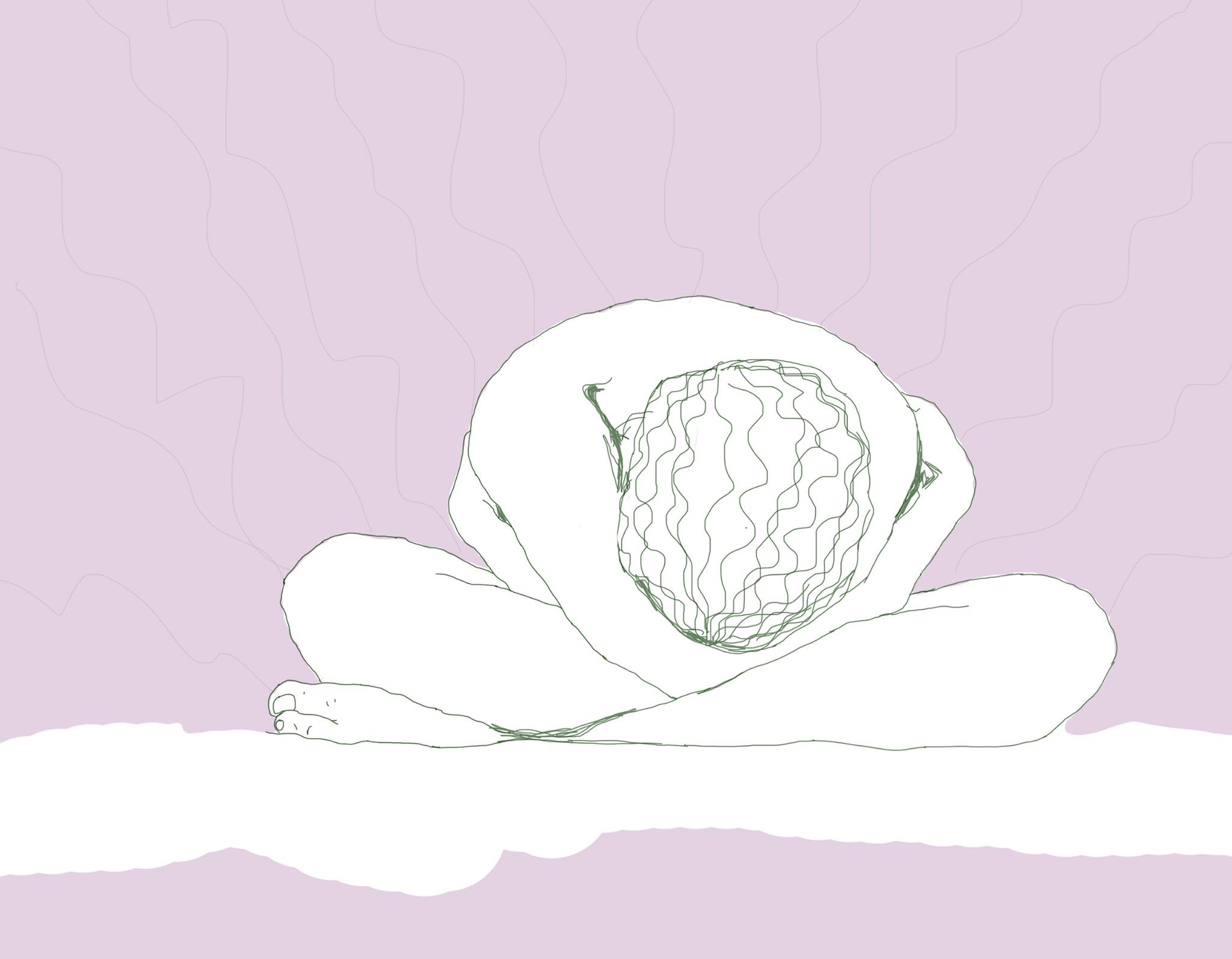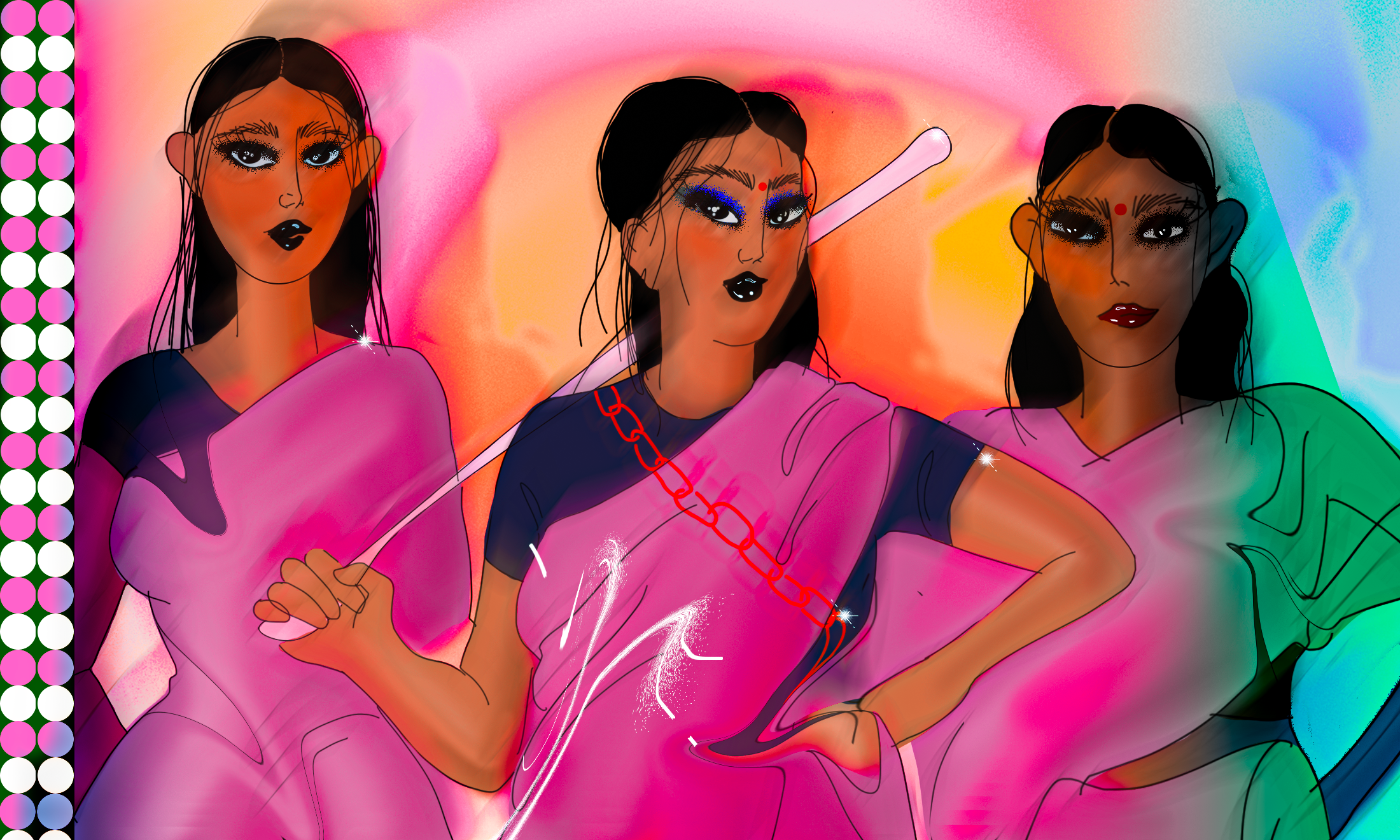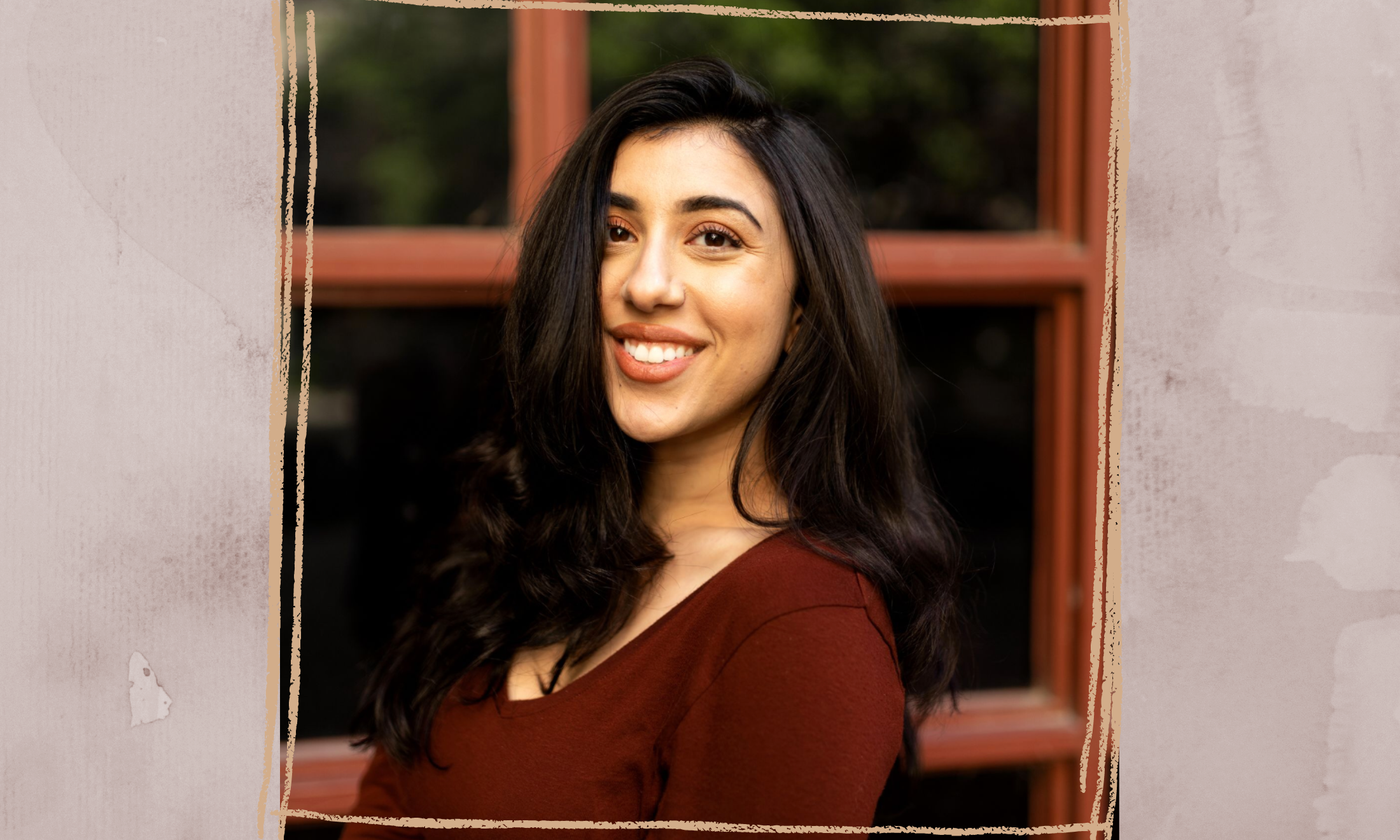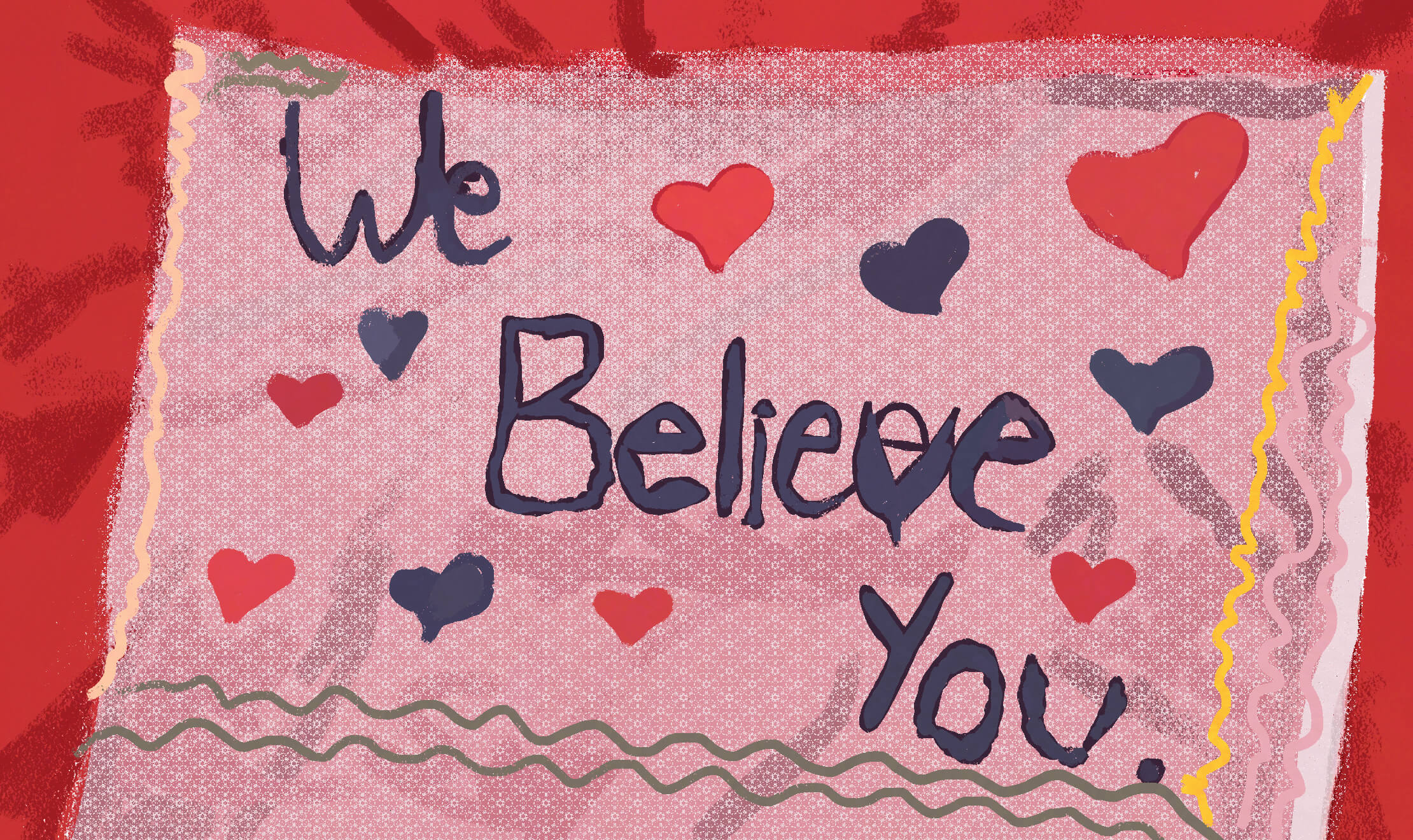
I don’t remember much of the first 13 years of my life, before my dad left. It’s as though my life began with his leaving. The memories I do have are hazy; like parts of a dream you try to hold on to after waking. I remember my dad’s violence towards my mum – him holding a fire poker above her head, as I stood and watched with my siblings, like rabbits frozen by a car’s headlights. My mum trying to cover up her bruises with make-up; running away to my grandparents’ house. I remember my dad shouting my name, and always being ready to jump up, like a bird permanently poised for flight – a feeling that has never left me. I remember running upstairs to keep out of my dad’s way when he came home from work. The sound of his angry voice. How he cast a long shadow over my childhood. I remember the story of my brother, Matthew, who was born and died a year before me. My mum believes his premature birth was caused by my dad being “brutal” towards her during pregnancy. Mostly, I remember the fear that pervaded my young life like rising flood waters, soaking everything. The dank smell has not faded over the years.
Recently, there has been a national debate around a storyline on the Radio 4 soap The Archers, which explored domestic abuse. The story was inspired by a new law which means the legal definition of domestic violence has been widened out to include controlling or coercive behaviour as well as other forms of violence. Whilst highlighting an important issue, The Archers portrays a situation in a white, middle class family. For BAME women and families, the picture may be more complicated. According to BAME support organisation Bawso, BAME women and girls face the same problems as other DV survivors, but there can be other issues too. This can include different forms of abuse – such as FGM, forced marriages, or “honour”-based violence – as well as additional barriers when it comes to seeking help. BAME women are one and half times less likely to seek help from outside agencies than other women. Many BAME women fleeing abuse will experience other forms of social exclusion such as poverty, unemployment or poor housing. There may be language barriers, a lack of knowledge around what support is available, a fear of being ostracised by your community if you leave, or a woman may be leaving the only family she has in this country. Agencies may not be able to offer adequate support. For some BAME women, violence has become normalised.
‘I remember my dad shouting my name, and always being ready to jump up, like a bird permanently poised for flight’
For most of my life I believed that racism made me who I am. It’s only in my mid-40s, with the help of my therapist and a life-changing book, Understanding Adult Survivors of Domestic Violence in Childhood, that I have come to understand the interconnectedness of different forms of oppression and the impact domestic violence had on me. I used to feel that my childhood was not as bad as many others – I hadn’t been sexually abused, beaten, been through war or seen my family killed – and there were nice times. Now, I understand that when a child witnesses their mum being beaten by their dad, this can have a long-lasting psychological effect.
So how has domestic violence affected me? I believe that witnessing violence has caused or contributed to a lifetime of mental ill-health. I experience symptoms of (or have been treated for) disorders including generalised anxiety disorder, OCD, depression, insomnia, panic disorder and complex trauma (a type of PTSD). I’m like the soldier returning from war, throwing themselves on the ground when they hear a balloon popping. I’ve had many of these for years, but some have got worse recently. I’ve experienced prolonged episodes of panic, with heart palpitations. I experience sudden noises physically, like a blow to the belly. I don’t like people sitting behind me, or on either side of me. I’m terrified of children getting hurt. I see danger everywhere. A friend recently said to me: “You’re like a prey animal, ears pricked up, looking for danger.”
‘I’m like the soldier returning from war, throwing themselves on the ground when they hear a balloon popping’
I self-medicated with alcohol (and sometimes drugs) for years. I had low esteem and self-hatred. I entered into a violent relationship at 17, and had other abusive relationships after that – although I’m happily married now. I have intrusive, obsessive thoughts. I see the world in black and white; everything is “good” or “bad”, there are no shades of grey, no in-between. I have to get things right. And there are the triggers – seeing violence on TV, in the lines of a poem or song. Every time I listen to a line in Ms Dynamite’s song ‘Put Him Out’:
Sure she confused and tired of always seeing mumma’s face bruised and drowning in tears
I cry, even though I’ve listened to it hundreds of times. I cannot bear to see children mistreated. Of course, there have been other traumas in my life that may have contributed. But I believe the problems were set in motion at an early age.
I’m not alone in the way I’ve responded. Although little research has been carried out in the UK into the impact of domestic violence on adult survivors, more work has been done in North America, and, according to Understanding Adult Survivors, victims can experience a range of psychological problems. Childhood exposure to domestic abuse has been found to be a risk factor for life-long problems. Many survivors are “deeply affected, and go on to experience ongoing guilt, pain and diverse problems”.
It’s not all negative, however. If children have protective factors, such as being in a safe space after the perpetrator has left the family home, having a supportive family or being encouraged to explore their experiences with professionals, they can go on to lead perfectly healthy adult lives. I didn’t have any of these factors in place. As my mum struggled to cope after my dad left, home life was still difficult, although I was no longer terrified. I was pleased that my parents had decided to divorce, (which was partly because they both agreed if they didn’t, he might kill her).
Things have improved for women (the majority of victims are women experiencing male violence) in abusive relationships over the years. There is more support available now than there was in the 70s and 80s, when it was seen as something which happened behind closed doors. For centuries, the right of a man to beat his wife was enshrined in British law. Now there is support from the police, and more women’s refuges, (although 17 percent of them have closed in the past six years). There is also the Freedom Programme, which helps women (and men) understand what happened to them, and helps male perpetrators to change their behaviour.
‘Last year, the legal definition of domestic violence has been widened out to include controlling or coercive behaviour as well as other forms of violence’
We know that in the UK one to two women a week die at the hands of a partner or ex-partner. An estimated 1.4 million women experienced domestic abuse in England and Wales during 2014. There has also been a rise in the number of men who kill their children, and then themselves (my dad threatened to kill us all – we could have been one of those tragic news stories). We all know that children who experience physical or sexual abuse often struggle as adults, so why do we know so little about the effects of domestic violence on children? More UK-based research needs to be carried out; we need to hear more from the voices of survivors. More needs to be done to prevent the abuse from happening, such as increased prevention work in schools. Young people should be taught to recognise abuse and know how to leave an abusive relationship. It feels as though there is still a taboo, and that violence towards women remains acceptable in our misogynistic society. Although The Archers’ storyline and TV programmes such as Murdered by My Boyfriend have highlighted the problem, much more needs to be done.
When I’ve touched on my experience of domestic abuse through my writing previously, I felt guilt and shame about shining a light on to my family’s darkness. My dad is an old man, in his eighties, and I don’t want to shame, or blame him. Our relationship is such that I rarely see him, although I visited him when he was in hospital earlier in the year. I understand he must have struggled, too. I understand it was difficult for my mum to leave. But the need to talk about this overrides the need to remain silent, and I should not be the one who feels guilt or shame. I have forgiven my parents for the past, but writing about the impact domestic abuse has had on me is part of the healing process. In Understanding Adult Survivors, the authors suggest that victims should be allowed to talk about their experiences in a safe space, as many times as they need to.
‘Young people should be taught to recognise abuse and know how to leave an abusive relationship’
There is a school of thought in modern therapies such as CBT and mindfulness that focuses on the present, (and being present). But as a domestic abuse survivor I carry the past with me; it’s there every time my heart beats too fast or when I jump at my own reflection. It’s there in my obsessive way of thinking. It’s there in my need to feel safe. I carry my mother’s bruises under the surface of my skin. By talking about the violence I am honouring the experiences which made me who I am. I wouldn’t have chosen to witness violence as a child, but it is what happened, and although it has caused me problems it has also given me resilience, creativity and empathy. I can’t change the past, but I can talk about it in the hope that others will too. Journalist Owen Jones wrote of the importance of men speaking out against violence towards women and girls. I think we should all be speaking out against it, and raising awareness about the often devastating impact violence has on women’s and children’s lives.









